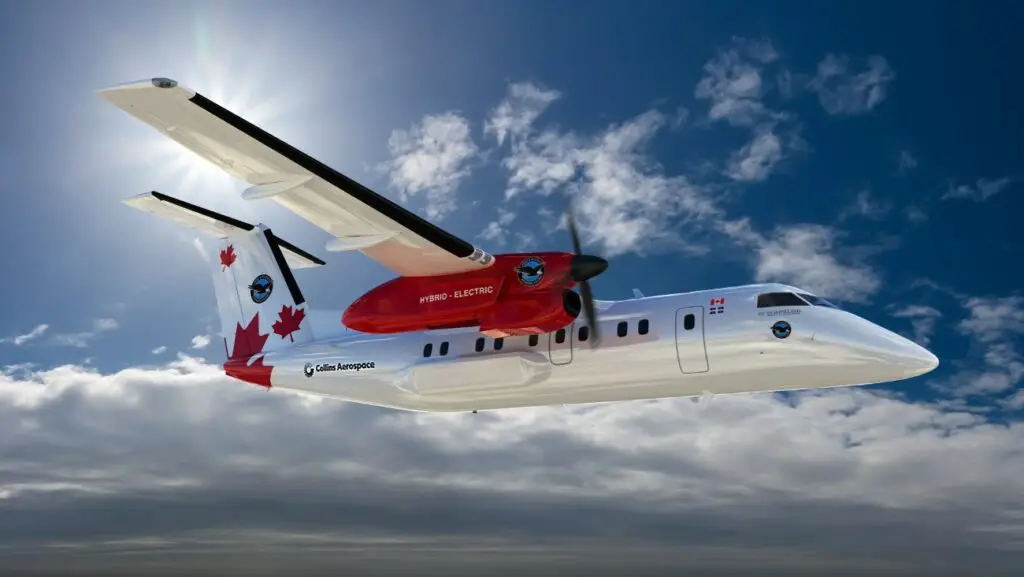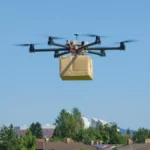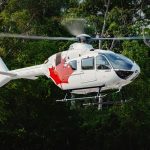At the Paris Air Show, RTX announced that it has successfully completed a rated power test (i.e. the maximum power a machine demands under normal conditions) of the one-megawatt electric engine developed by Collins Aerospace for the De Havilland Canada Dash 8.
Work is currently underway in Solihull, United Kingdom, as well as at the University of Nottingham’s Institute for Aerospace Technology.
See also: Paris Air Show 2023: De Havilland launches updated DHC-6
The new hybrid-electric engine being developed for the Dash 8
The powerplant will be combined with a high-efficiency internal combustion engine, developed by Pratt & Whitney. It will be part of a hybrid-electric propulsion system designed to power regional aircraft and reduce fuel consumption and associated emissions by up to 30% compared to turboprops currently in service.
According to a press release from Pratt & Whitney, a business unit of RTX, the engine will deliver four times the power and twice the voltage compared to current Collins Aerospace developments. In addition, the new powerplant will be up to 50% lighter.
Following the first tests in December 2022 at Pratt & Whitney’s facility in Longueuil, Canada, the process will continue throughout this year. According to the company, the propulsion system and batteries will be integrated into an experimental Dash 8-100 aircraft and, if all goes according to plan, the first flight tests could begin in 2024.
The project’s potential
«With its industry-leading power density and efficiency, our 1MW motor will help to significantly reduce aircraft carbon emissions by supporting hybrid-electric propulsion architectures on the next generation of commercial platforms», said Henry Brooks, President of Power & Controls at Collins Aerospace.
Jean Thomassin, Executive Director of New Products and Services at Pratt & Whitney, said: «Hybrid-electric propulsion technology offers significant potential to optimize aircraft efficiency across a range of future aircraft applications and is a key part of our technology roadmap for supporting more sustainable aviation».
«Aside from leveraging the deep expertise of Pratt & Whitney and Collins engineers within RTX, our project draws from extensive collaborations across Canada’s aerospace ecosystem and around the world», Thomassin added.
See also: Paris Air Show: ZeroAvia confirms the feasibility of a hydrogen-powered CRJ700














